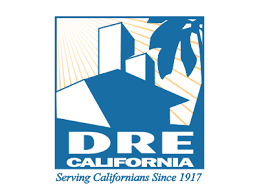|
HOA Homefront: Can board deny privileges if homeowners aren’t paying?
BY KELLY G. RICHARDSON JUNE 17, 2017 12 AM PTQ:Our homeowners association reserves are extremely low and our collections are growing worse by the day. We are a gated community, with many renters. Can we deny access to the automatic transponder gate to delinquent owners/renters and require that they wait at the guarded gate for entrance? Can we deny the use of pool, tennis, clubhouse, laundry room, etc.? Our CCR’s state that we must provide unit access to owner/occupant. If the association has not taken these or other serious actions, could the board and the manager be sued? To date, we just lien properties that go back to the bank and we rarely get paid or go after an owner. J.S., Santa Ana A: The association cannot bar owners from their property, not even if they are delinquent in their obligations to the community. Civil Code 4510 does not allow associations to keep owners from their property, either directly or through banning access to common area. However, there are other measures that can be taken. The board could, after a hearing, suspend the member’s rights to common area amenities and voting rights. Disabling the transponder so that the delinquent owner must use the visitor entrance is also an option, as it is not barring the owner from their property, but rather disabling a convenience amenity – the remote control of the association gates. Posting a list of delinquent owners to embarrass them is sometimes mentioned, but is a very bad idea. One of the most important responsibilities of HOA boards and managers is to ensure all members pay their obligations under the association’s budget. Sometimes boards are tempted to not pursue arrearages, out of compassion for the struggling owner, but this ignores the rights of all the other owners who pay their share. By far, the most effective technique is to promptly pursue delinquencies before they become too large. It is critical to promptly record liens and then begin foreclosure (by non-judicial or judicial method) as soon as the law allows (one year or $1,800, whichever occurs first). Judicial foreclosure (a lawsuit by the HOA) provides the association the choice of taking the property or obtaining a money judgment. The availability of a money judgment is important when the property has little net value, but does require involving the association’s attorney. Q:What happens to the liens if the owner of the property is attempting to do a short sale? Are holders of liens included in the short sale negotiations, or do these also get extinguished? Thanks, R.G., Anaheim A: A “short sale” is one in which the lien holders all agree to accept a lower amount (hopefully pro rata) than the full amount of the liens in order to allow the property to be sold. The association assessment lien is normally much smaller than the bank mortgage. Consequently, banks often will hold the threat of foreclosure over the HOA, since a foreclosure normally will wipe out the HOA’s lien. If the bank conducts a short sale without the HOA’s consent, the property still is subject to the lien. This means that it is usually in the best interests of both bank and HOA to cooperate, and each take an equal discount. Kelly G. Richardson, Esq. is a Fellow of the College of Community Association Lawyers and Managing Partner of Richardson Harman Ober PC, a law firm known for community association advice. Submit questions to [email protected]. Past columns at www.HOAHomefront.com. https://www.latimes.com/sd-fi-hoa-20170617-story.html
0 Comments
Leave a Reply. |
Archives
July 2024
Categories
All
|
Locations |
KEYBOXDRE 02086236About Our Broker: Los Angeles native, with a Bachelor's and Master's from Stanford University.
California Real Estate Broker Exam Perfect Score. |
What Our Clients Are Saying"Keybox is a rare balance of both approachable and professional, always responds quickly and efficiently when I reach out, and I trust the Broker completely. Highly recommended!!" |

 RSS Feed
RSS Feed

